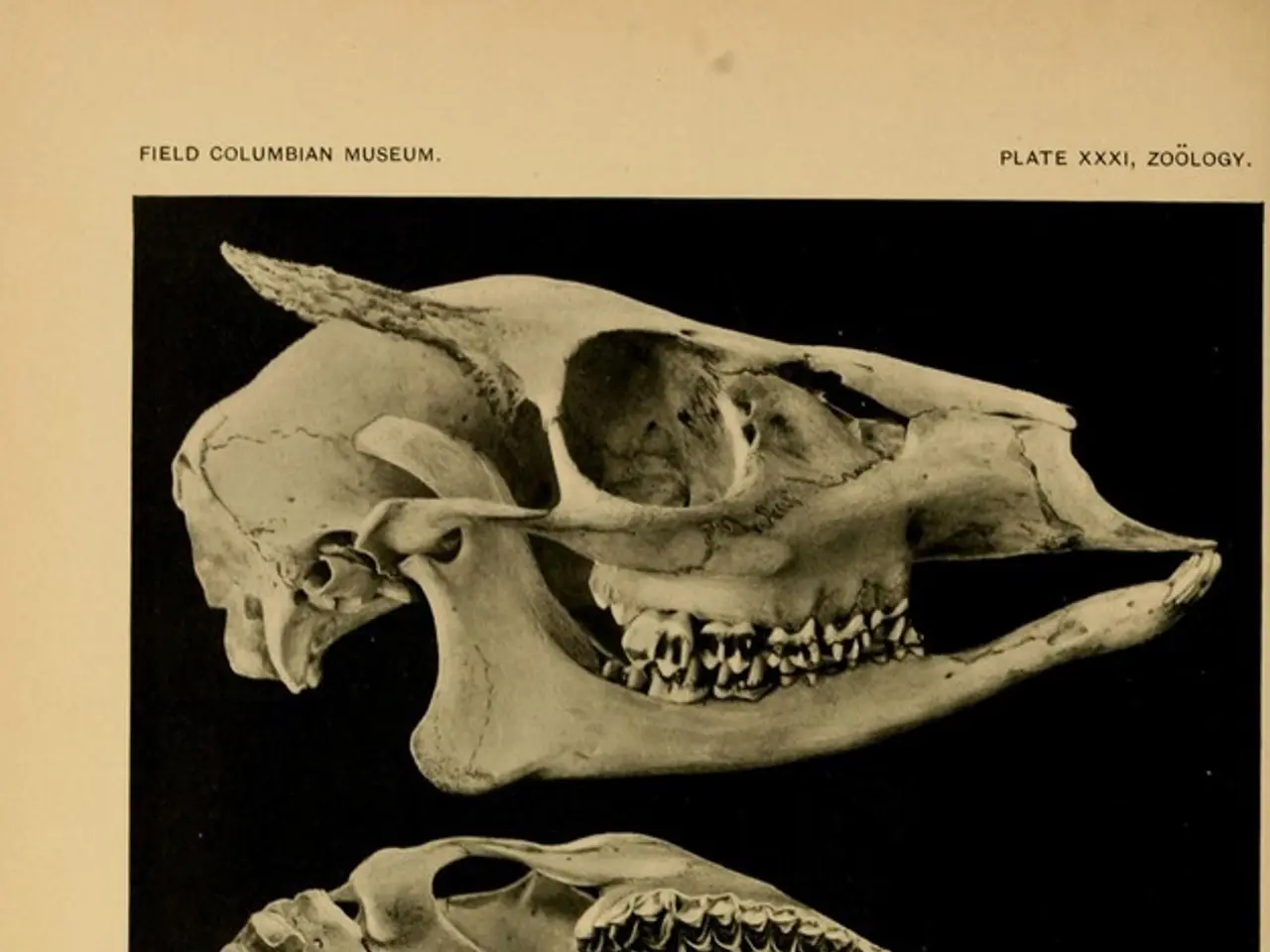Unusual Findings in a Man's Brain Revealed by Weakness in Leg
A 44-year-old man in France has defied medical odds by maintaining a relatively normal life despite being missing around 90% of his brain. The man's remarkable story, which was published in The Lancet, has shed light on the complexities of the human brain and the resilience of the human body [1][2][3].
The journey began when the man sought medical help for two weeks of left leg weakness. Upon examination, doctors were taken aback to discover the man's brain was dramatically smaller than usual, with CT and MRI scans revealing substantial fluid accumulation within his cranial cavity [4]. The enlarged ventricles, which are fluid-filled cavities, were likely responsible for his leg weakness.
Medical experts drained the excess fluid from the man's brain and inserted a new shunt to alleviate pressure. The man, who had a childhood shunt placement to address fluid buildup in his brain, showed significant improvement within a few weeks, particularly in relation to his leg weakness [4].
Despite his small brain size, the man's cognitive function, as measured by his IQ, remained stable. His ability to function normally and maintain a successful career as a civil servant challenges conventional notions of brain structure and function [1].
This case raises important questions about how much brain tissue is necessary for normal cognitive and physical function. It suggests that the brain can adapt and reorganize itself in ways not fully appreciated before, offering insights into neuroplasticity mechanisms that might be applicable to brain injury and neurodegenerative disease treatments [5].
The implications for human brain development include the brain's remarkable ability to adapt to severe structural abnormalities, potential reorganization of neural networks to preserve function despite massive tissue loss, and insights into neuroplasticity mechanisms.
While this case is extraordinary, it also aligns with broader evidence that adult brains retain some capacity to produce new neurons and reorganize, albeit at reduced levels compared to children, which might contribute to resilience in the face of injury or developmental anomalies [5].
The man's case serves as a poignant reminder of the resilience and adaptability of the human body. It underscores the remarkable capacity of the body to overcome challenges and thrive in the face of adversity. The discovery of the man's abnormally small brain underscores the importance of continued research and exploration in the field of neuroscience [6].
Moreover, the man's case raises intriguing questions about the nature of brain development and the complex interplay of genetic and environmental factors that shape our neurological architecture. As research continues, we may uncover more about the true extent of the human brain's resilience and the factors that contribute to its remarkable capacity for adaptation.
- This case in France showcases the man's ability to maintain a career as a civil servant, despite having a small brain, highlighting the significance of health-and-wellness and mental-health in one's career.
- The man's extraordinary story provides insights into neurological disorders and the brain's resilience, offering potential treatments for medical-conditions that affect the brain.
- The man's experience, despite the severity of his condition, underscores the importance of environment and science in understanding and caring for those with neurological disorders.
- The man's resilience, despite his brain structure, emphasizes the intricate complexities of the environment, health, and science, and their profound impact on our understanding of human body and brain.




